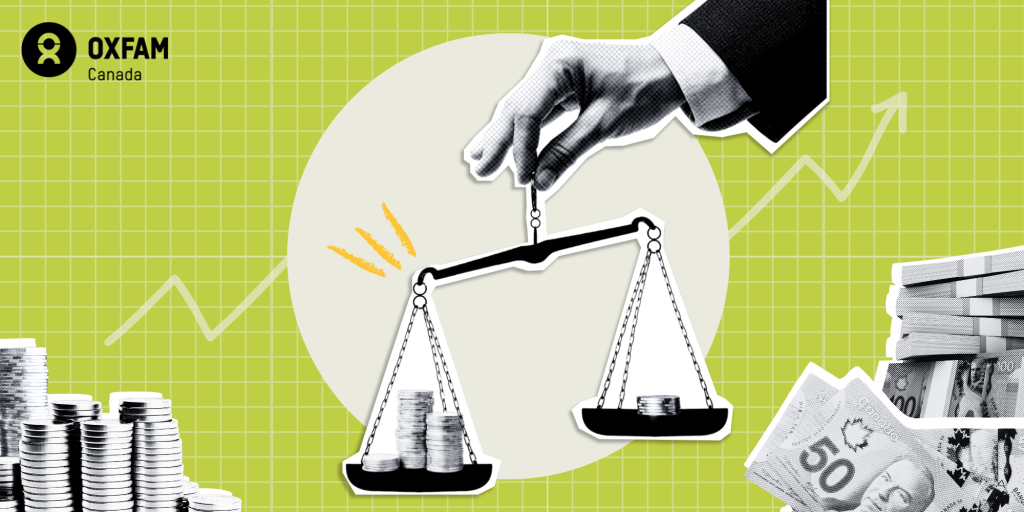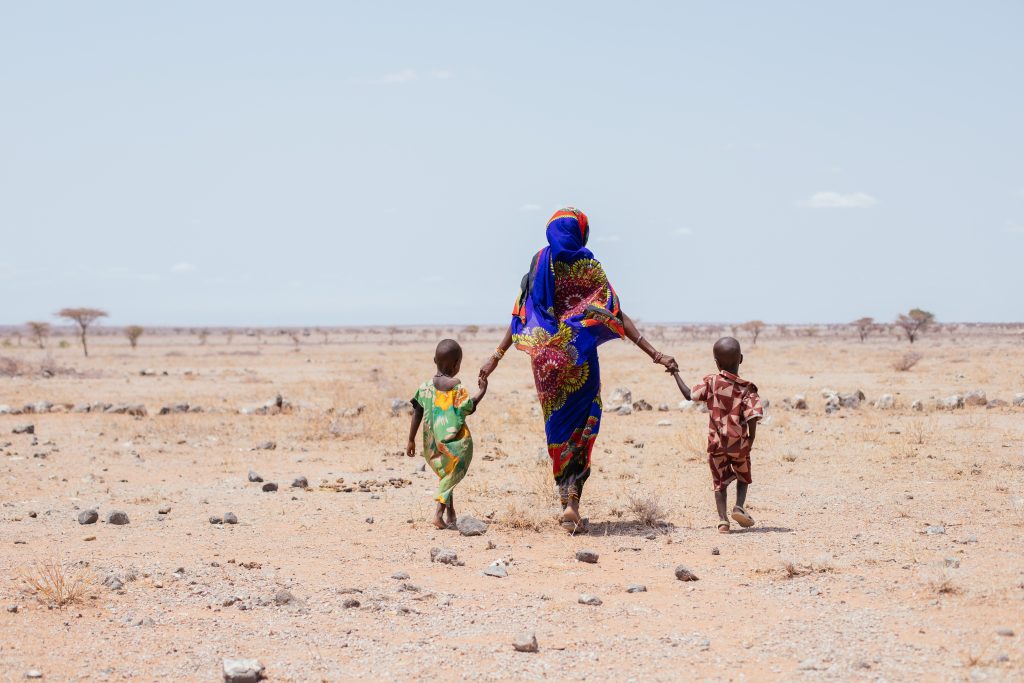Easing the burden on mothers in refugee camps
For many refugees, one of the toughest things they have to face while trying to survive is also worrying about the health and safety of their children. And with global aid cuts happening around the world, we worry about the effects on refugees living through unstable conditions.
At Oxfam, we bear witness to the courage of refugees who go to extreme lengths for the survival of their children. Nyhtuk Hukuch is a South Sudanese refugee living in Gambella, Ethiopia, who has had to make the difficult decision to either feed her children or spend the day in pursuit of clean water to keep them healthy. That is a choice no parent should have to make.
We have been on the ground in Gambella since 2014, and in 2022, the United Nations appointed Oxfam the lead agency for water, sanitation, and hygiene for all seven refugee camps for refugees in Gambella. We hope that by providing essential services, refugees in the Gambella camps, where women and children are the majority of residents, won’t have to make as many difficult choices.
In honor of World Refugee Day, read the story of these two women in Gambella; Nyhtuk Hukuch and Ngakutoth BieI, to better understand what it’s like to live in a refugee camp and the difference the humanitarian aid makes in people’s lives.
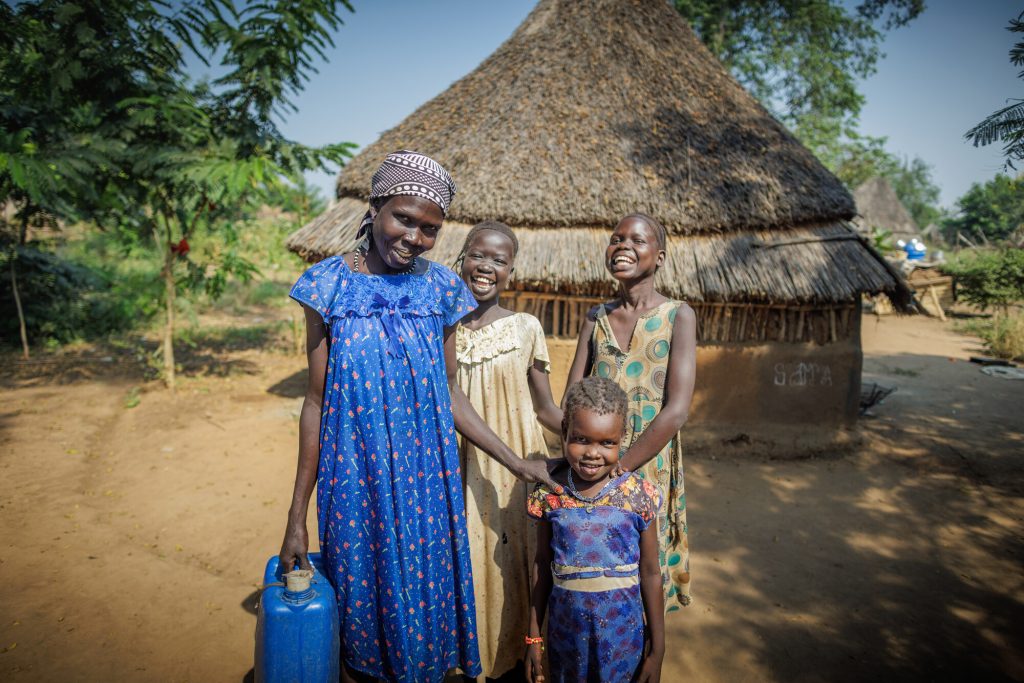
Nyhtuk Hukuch, left, posing together with her three children in a camp for refugees in Gambella, Ethiopia. Photo: Petterik Wiggers/Oxfam
Nyhtuk Hukuch, 30, has lived in refugee settlements with her family for about a decade, since she fled violence in South Sudan. When Hukuch took off for the border of Ethiopia, a journey that took three days by foot, she was solely focused on her family’s immediate safety.
Upon arriving in Gambella, a remote region in western Ethiopia, she realized there was not much infrastructure in place. “It was just bare ground with no services or facilities to support the people who had fled here for safety,” Hukuch recalls. “We did not receive the kind of support we desperately needed because everything was still being set up. Life was especially difficult for women like me who had young children to care for.”
Water was a luxury, trucked into the camp by humanitarian groups, but only provided every other day. On days where there was no water, Hukuch would have to search it out.
“As a mother of three at the time, fetching water was one of the toughest challenges I faced,” she says. “That task consumed my entire morning. Because of this, my children often didn’t have breakfast.”
DONATE: This World Refugee Day, stand with families forced to flee.
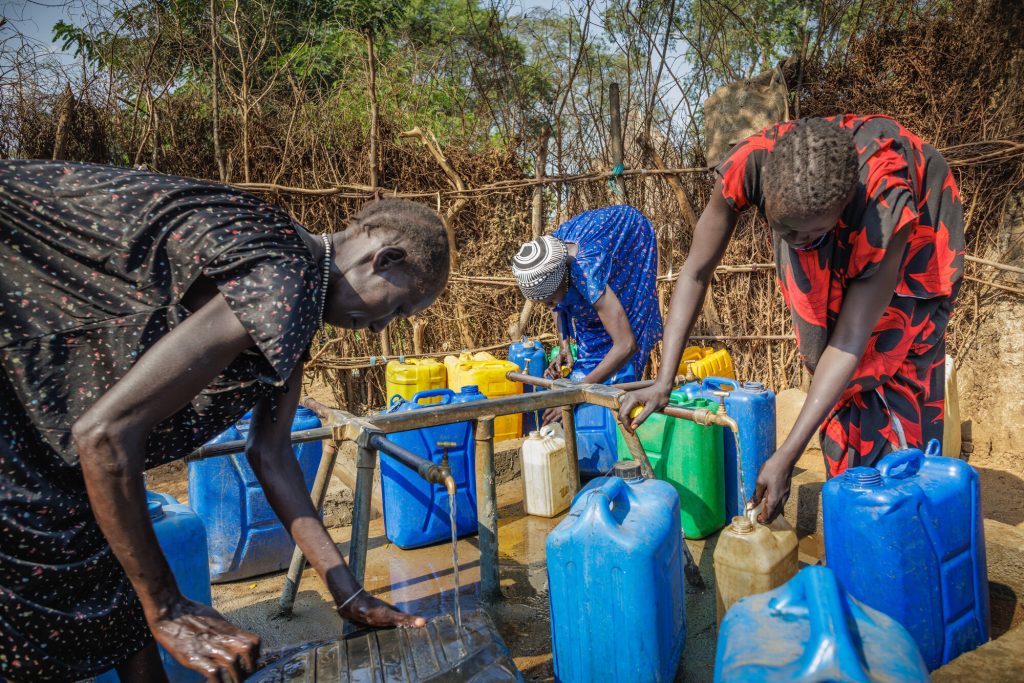
Nyhtuk Hukuch, center, and other women fill jerry cans at a water point installed by Oxfam. Photo: Petterik Wiggers/Oxfam
After Oxfam took over water services in 2022, a water point was finally installed close to where Hukuch lives, a move that she says changed things for the better. “We now have easy access to water for drinking, cooking, and washing clothes. ... Having the water point close to us has completely transformed our daily lives.”
Hukuch, now a mother of six, says that the clean water has positively impacted the community. “Diseases have reduced because we now have clean water for drinking and better hygiene practices,” she tells us. “The combination of clean water, better sanitation, and access to healthcare has made a noticeable difference in the well-being of the community.”
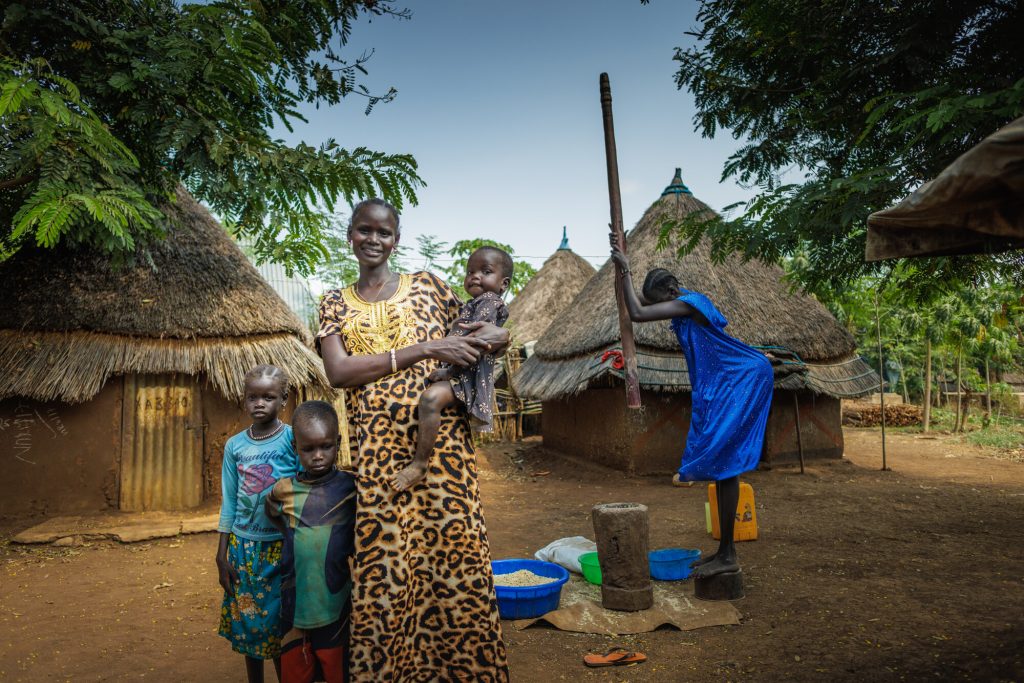
Ngakutoth Biel came to Ethiopia in 2017. She lost her son and her uncle while traveling from South Sudan to Ethiopia. Photo: Petterik Wiggers/Oxfam
When she fled Juba, South Sudan, in 2017, Ngakutoth BieI was forced to flee without her husband. The monthlong journey was treacherous, and there was nothing to eat and no clean water available until she reached Gambella. By the time she arrived in Ethiopia, she was able to reunite with her husband, but her uncle and young son had passed away.
“During that time, I felt a deep sadness from losing both my child and my uncle,” she says. “At that moment, I thought that if something were to take my life, I wouldn’t mind."
She found solace in the community at the camp, where she encountered others who had experienced great losses as well. Still, life was difficult in Gambella.
“When we first arrived at the camp, there was a severe shortage of water,” she said. The water tanks were too small, and the vehicles that came to refill them couldn’t meet the demand. It took us about half an hour to reach the place to fetch water, and often, when we arrived, the tank was empty.”
To meet the demand, Oxfam installed water points across different blocks, ensuring that clean water is within walking distance for everyone. “With the new water points in place, life has become easier.” Biel, who was pregnant when we spoke to her, said the clean water would allow her to better care for her baby after delivery.
Despite these improvements, there is still much to be done in Gambella.
DONATE: This World Refugee Day, stand with families forced to flee.
“In some areas, water doesn’t come regularly,” reports Biel. “There is a pump on the hill, but it only sends water to specific zones, and water is not available all day. This limited access to water is still a problem, especially since water is essential for life.”
Hukuch echoes this sentiment. “The lack of resources continues to be a major challenge for us,” she says. “Despite the challenges, I am grateful for the progress that has been made, especially with the installation of the water point. It has brought relief and improved the quality of life for my family and the entire community.”
Oxfam is now the sole water provider in the refugee camps in Gambella, and we plan to continue providing clean water, sanitation, and hygiene education to over 388,000 refugees with your help.
